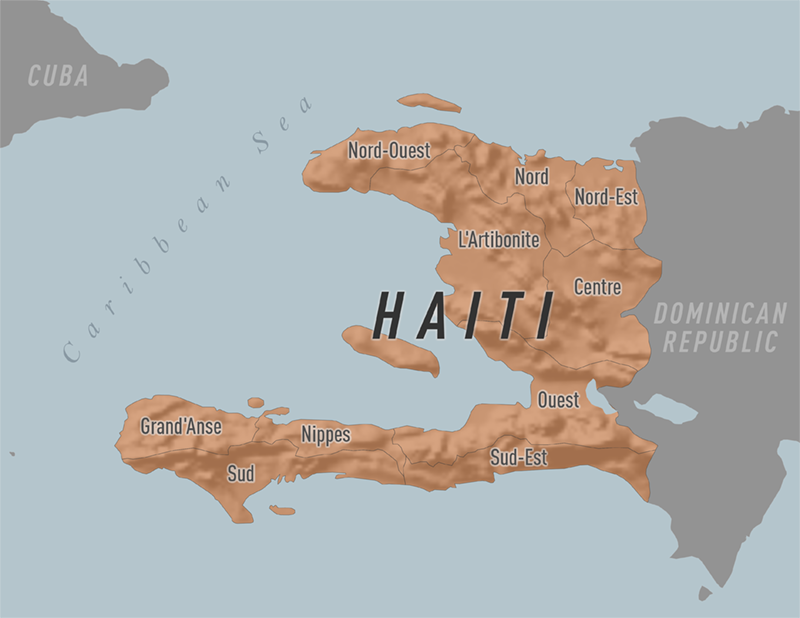(ThyBlackMan.com) I was quite taken aback by something said at last Tuesday’s discussion, The Changing Currents in Haiti: Can the Diaspora Steer the Tide, sponsored by Dr. Natanya Duncan, Director of Africana Studies at Queens College and moderated by Dr. Francois Pierre-Louis.
Attorney Leonie Hermantin declared with regards to helping Haiti, “We are not a monolith. We have different interests, identities and perspectives.” Yes, I said to myself. After all, we are African American, Jamaican, Nigerian, Trinidadian, etc. But as she continued, I soon realized she wasn’t talking about the African Diaspora, writ large, but about the sliver that’s the Dispersal of the Haitian People around the globe. Thus, I was abruptly reminded that the divisions in the African Diaspora extend all the way down to the granular level.
Attorney Hermantin also insisted that the solutions for Haiti must come from the Haitian people living on the island. All that everyone else can meaningfully do is foster conditions on the ground that enable the Haitian people to regain control of their own destiny.
Later, Dr. Cecile Accilen asserted that it was essential to instill a positive Haitian identity in young Haitians in the Diaspora. She advocated that the youth be exposed to images other than trauma and suffering in connection with their homeland. But, she cautioned, there is a major stumbling block. Young Diasporeans, almost universally, reject any discussion, let alone recognition, of the African religious practices that permeate the culture.

Dr. Eddy Saint Paul responded, “We must deconstruct the imperial narrative and tell the real History of Haiti.”
Note, the Haitian, the French and the American Revolutions are all of a piece, a piece of key unfinished business in the history of the planet. Haitian soldiers fought, and died, in the American Revolutionary War in the Battle of Savannah. (There’s a monument to their bravery on prominent display in that Georgia city.) Several years after the successful American Revolution, Thomas Jefferson, with the enslaved half-sister of his wife as his constant companion, travelled to Paris to join French writers in drafting The Declaration of the Rights of Man and the Citizen. It repeated Jefferson’s earlier Declaration of Independence’s central claim that “All Men are Created Equal.” This, from the largest slaveholder in the nation.
The two Declarations, together with the example of the American Revolution, ignited the French Revolution, which, in turn, inspired the Haitian Revolution. Meanwhile, back in France, Napoleon somehow emerged as the leader of a revolution aimed at ending kingship, as a king, in fact, an Emperor. And so, when Haiti broke free of French control, Napoleon sent an army to reclaim the island and to re-enslave the Haitians with the active assistance of Britain and the United States. Thus, even while Haiti fought to drive the Spanish from the Eastern half of the island, she had to also do battle with this trio of powerful foes. And Haiti won!
Napoleon thereupon promptly sold France’s entire holdings in North America to the US for a pittance. The “Louisiana Purchase,” as it was called, included not just what is now the state of Louisiana, but also the entire, sprawling Midwest section of this country.
How, though, were the Haitians able to triumph over the combined might of Britain, France, Spain and the United States? By utilizing the very thing we have been studiously taught to avoid and to abhor, African Spirituality.
Note the reverberations of the Haitian Revolution. In its immediate aftermath, Britain brought the trans-Atlantic slave trade abruptly to a close and abolished slavery in all its colonies. Meanwhile, the Haitian government equipped Simon Bolivar with weapons, food and men to liberate Gran Colombia (what is today Colombia, Ecuador, Venezuela, Panama and much of Brazil and Peru, from Spainish control) on the proviso that slavery be ended there. At the same time, Haitian born Jean Baptiste Pont du Sable’s bustling trading post on the Lake Michigan was blossoming into the City of Chicago.
However, Haiti would, literally, have to pay for having the audacity to free itself and spread the flame of liberty. Though Haiti was now wholly free, politically, no island can remain sufficient unto itself. Haiti had to have trading partners. And the price demanded to lift the trade embargo, instituted by the colonial powers, was that Haiti pay reparations, yes reparations, to France. Reparations for the “property” that France lost in the Haitian Revolution, namely the Haitians themselves. And thereafter it became Job Number One of Western Education and Western Media to demonize the invincible tool Haiti used to unlock the chains of its oppression, African Religion.
And so, the seeds of class division, color division, language division and every other division imaginable were sown on the island of Hispanola, anc in every former European colony. Today foreign control of the economy, manipulation of political leadership, rampant corruption and widespread poverty are found throughout much of the Diaspora, but it is on Hispanola that these scourges are most virulent, because that is where the fire of African Liberation was lit.
The solution? As Dr. Cecile Accilen insisted “We need to create our own media in order to bring Haitians together.” (And to bring the entire Diaspora together.) And we are creating our own media. For example, take the excellent, widely available documentary that illuminates the real history of Haiti, 1804, made by the producers of the enlightening series of videos on African History, Hidden Colors.
And for those who want a detailed, heavily documented study there’s the universally acclaimed, landmark work in historiography, C. L. R. James’ Black Jacobins. And, of course, there are the ongoing series of workshops and discussions taking place throughout the Diaspora, and available online, like the one on September 29, 2021, The Changing Currents in Haiti: Can the Diaspora Change the Tide sponsored by the administration, staff and students of Queens College Africana Studies.
Staff Writer; Arthur Lewin
This talented author has just published a NEW book which is entitled; AFRICA is not A COUNTRY!.
For more articles written by this talented brother click on the following link; https://thyblackman.com/?s=lewin.

















Leave a Reply